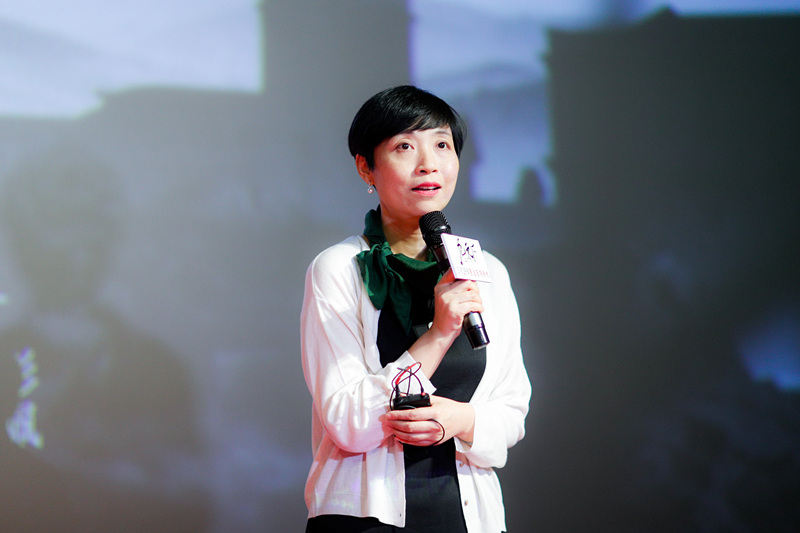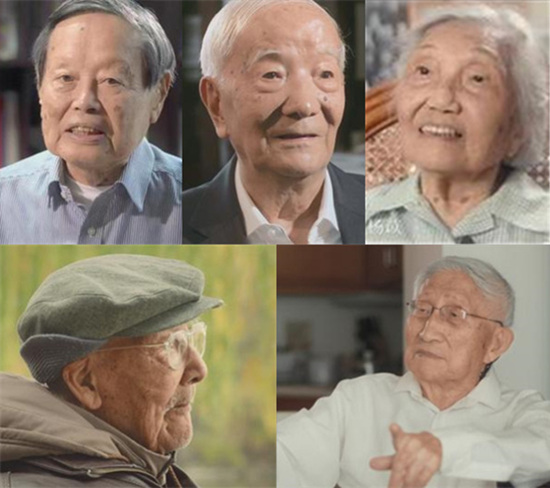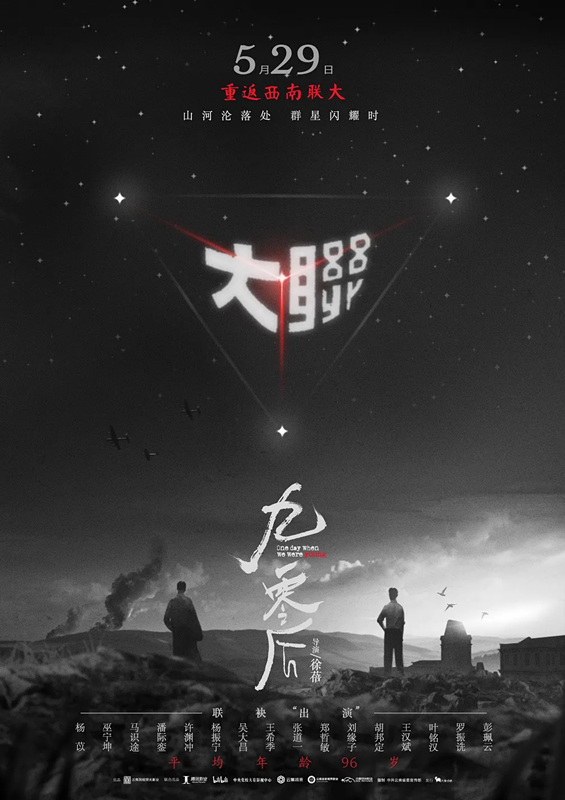Rush to document legends of China's wartime university
- By Zhang Rui
 0 Comment(s)
0 Comment(s) Print
Print E-mail China.org.cn, May 14, 2021
E-mail China.org.cn, May 14, 2021
A new documentary film about the short-lived National Southwest Associated University (NSAU) premiered on May 8 to remember legendary figures who were the pillars of China's revival.

"One Day When We Were Young," directed by Xu Bei, attracted more than 100 descendants of NSAU alumni to its premiere in Beijing, and will be released nationwide from May 29. At the premiere was a special guest: Wang Wenjun, an alumnus from the university's department of civil engineering, who at 102 was the event's oldest attendee.
The filmmaker interviewed a total of 16 prominent figures from the university for the film, including Chen-Ning Franklin Yang, a Nobel laureate in physics; Pan Jiluan, an academician of the Chinese Academy of Sciences; Wang Xiji, a top Chinese aerospace engineer awarded the Two Bombs, One Satellite Meritorious Medal; novelist Ma Shitu; and renowned translators Xu Yuanchong, Yang Yi and Wu Ningkun. They are all in their 90s.

The NSAU was a coalition between Peking and Tsinghua universities in Beijing and Tianjin's Nankai University during the Chinese People's War of Resistance Against Japanese Aggression. The university was opened in Changsha, Hunan province on Nov. 1, 1937, and moved further south to Kunming, Yunnan province in 1938. It was home to some of the most famous scholars and professors in Chinese history, including Wen Yiduo, Zhu Ziqing and Feng Youlan. Now part of the modern campus of Yunnan Normal University, it has become a must-visit site for people.
Xu Bei, who has a master's degree in social anthropology from the University of Cambridge, first made a five-episode documentary series on the NSAU in 2018. Titled "Lianda: A Chinese University in War and Revolution," it achieved the extremely high score of 9.4/10 on China's review site Douban.

"I realized that many of them were actually talking to us about their lives and experiences for the final time in their life," Xu said emotionally. When these legendary figures granted her permission to film them, Xu felt an enormous burden on her shoulders.
"They deserve to be seen on the big screen with perfect sound in the best film-watching environment. We should let the audience, silently but with huge respect, watch them tell their stories," she said, explaining her motivations for making the film.
Professor Gu Chunfang of the School of Art at Peking University believes that documenting the NSAU's history is of special significance, "I think this should remain in our memory forever and become an important legacy of the Chinese national spirit."
Despite only being in existence for about nine years, the university has been influencing China for eight decades, producing two Nobel Prize winners, five acclaimed scientists, eight key contributors to China's atomic bomb and satellite development, 172 academicians of the Chinese Academy of Sciences, and more than 100 key cultural figures.
Xu explained that the short-lived university has had a lifelong impact on the alumni and that these old people share a lot of common characteristics. "Many people went through real hardships and experienced unbearable things during that special period in history. But when you meet them face to face, you can still see their pure hearts."
For Xu, the film shows their defiant youths, their confusion, romances, the paths they took, and their dedication to the country during wartime. "I feel like we can still resonate with them, and they're actually the mirror of us."

The film also shares many personal moments with those who took part. For example, after her interview, renowned translator Yang Yi started listening to her Walkman. "This is my hobby," Xu remembered Yang telling her. She overheard the song was "One Day When We Were Young" from the movie "The Great Waltz" (1938) and immediately decided to use it as the title of her film.
Making a film about this period has allowed Xu to reflect on herself more. "This is fertile soil. Over the past few years, I feel that a new me has grown from this soil. We don't expect this film to be able to influence a generation, but we hope that individuals can draw strength from it."






Go to Forum >>0 Comment(s)